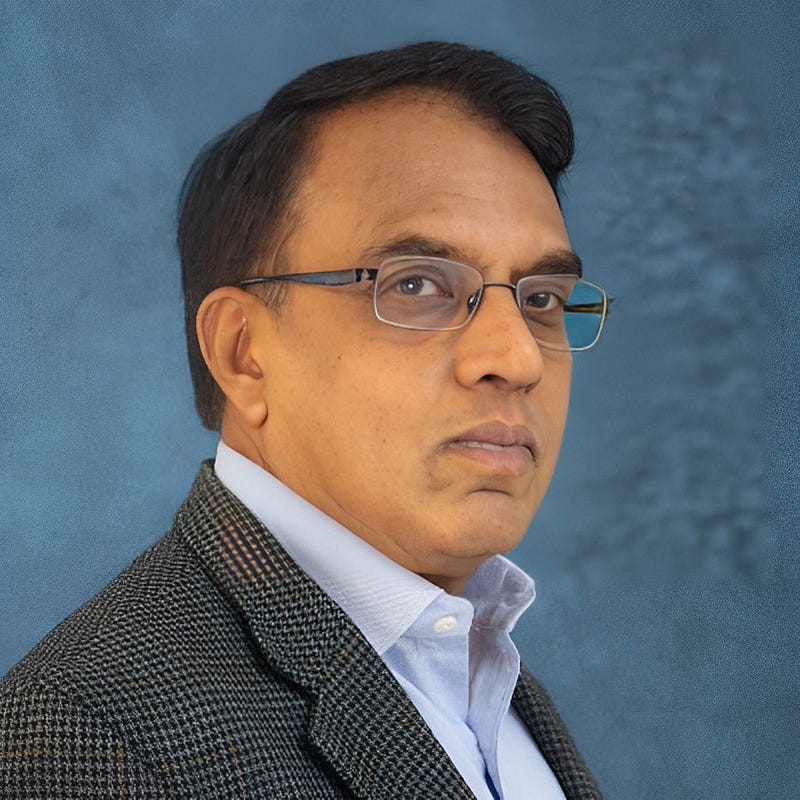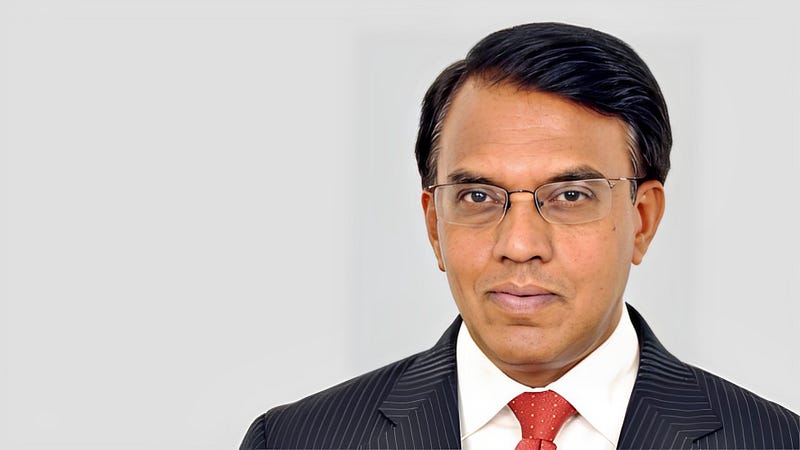Inspires execution and cares for the environment.
We are living in the Renaissance of Work. Just like great artists know that an empty canvas can become anything, great leaders know that an entire organization — and the people inside it — can become anything, too. Master Artists and Mastering the Art of Leadership draw from the same source: creation. In this series, we’ll meet masters who are creating the future of work and painting a portrait of lasting leadership. As part of this series, we had the pleasure of interviewing Tan Moorthy.
Srikantan Moorthy (he goes by Tan) serves as EVP at Infosys and possesses 33+ years of experience in the IT industry. Prior to his current role, Tan served as SVP and Head of Education & Research at Infosys, where his primary responsibility was talent development through competency building, an initiative to which he was a key contributor. He has worked in several facets of the business encompassing both strategy and operations during his career in the professional services industry.
Tan joined Infosys Ltd in 2000, prior to which he served as General Manager of Inventa Corporation. He started his career as a software engineer and has worked on a variety of computing platforms working on both systems and applications programming. Tan has played multiple roles including those of a division General Manager and Client Partner working with Fortune 500 clients. During his tenure at Infosys, he managed client delivery for a large business unit managing projects worth over two hundred million dollars with a team of more than 4000 people. He is an active representative of Infosys in several professional bodies, including the Professional Development Committee of ACM (Association for Computing Machinery), NASSCOM (National Association of Software and Services in India) Education Council and IFEES (International Federation of Engineering Education Societies).
Thank you for joining us. Our readers would enjoy discovering something interesting about you. What are you in the middle of right now that you’re excited about personally or professionally?
There are several things going on — last week we completed the Infosys Crossroads event that saw an exciting group of K-12 educators and policy makers come together in Phoenix to discuss how we can create the talent of the future; my engagement with a UN workgroup on defining metrics for corporates to achieve Sustainable Development Goals is connecting me with many passionate people who are keen to make a difference in the world. The opportunity to mainstream apprenticeships as a way of enabling workforce development is very exciting.
We all get by with a little help from our friends. Who is the leader that has influenced you the most, and how?
Hard to call out one person because I have learnt from many people especially when I look to pick an attribute rather than a person — whether it is Helen Keller for how she made sure that her blindness never came in the way of what she wanted to achieve, Mother Theresa for her empathy or Jerry Rice for being the most reliable receiver for his team who they could always depend on.
Sometimes our biggest mistakes lead to our biggest discoveries. What’s the biggest mistake you’ve made as a leader, and what did you discover as a result?
One of my biggest learnings came when I made a proposal presentation to a team and later found out that what they were looking for was not the technical solution but for somebody to change the mindset of their team. Putting myself in the shoes of the listener and seeking first to understand before being understood is the approach I try to take now.
How has your definition of leadership changed or evolved over time? What does it mean to be a leader now?
In the early days of my professional life, I had naively thought of leadership as providing direction but now I have come to realize it is about making time to get inputs from a broad spectrum of stakeholders and being willing to be led.
Success is as often as much about what we stop as what we start. What is one legacy leadership behavior you stopped because you discovered it was no longer valuable or relevant?
Quite some time ago, I stopped prescribing what needs to be done and adopted subscribing to new ideas as a way to enhance the effectiveness of an approach.
What is one lasting leadership behavior you started or are cultivating because you believe it is valuable or relevant?
Empathy is a critical requirement to be a leader and so I do my best to ensure I’m empathetic in every situation.
What advice would you offer to other leaders who are stuck in past playbooks and patterns and may be having a hard time letting go of what made them successful in the past?
Paying more attention to win a game rather than an individual transaction can help leaders be more successful.
Many of our readers can relate to the challenge of leading people for the first time. What advice would you offer to new and emerging leaders?
Treat others the way you want to be treated and the rest will follow!

Based on your experience or research, what are the top five traits effective leaders exemplify now?
- Respect for the team.
- Commitment to excellence.
- Driven by values.
- Inspires execution and cares for the environment.
American Basketball Coach John Wooden said, “Make each day your masterpiece.” How do you embody that quote? We welcome a story or example.
To me, a good day is one when I have made a difference to somebody, brought a smile to their face or raised a person’s confidence. I constantly look out for opportunities to do any of these every day interactions.
What is the legacy you aspire to leave as a leader?
I aspire to be a leader who made a difference by doing what he said and saying what he did.
How can our readers connect with you to continue the conversation?
Please connect with me through my Linkedln — linkedln.com/in/tanmoorthy. I love networking and getting to know new, bright minds.
Thank you for giving us the opportunity to experience a leadership master at work. We wish you continued success and good health!


